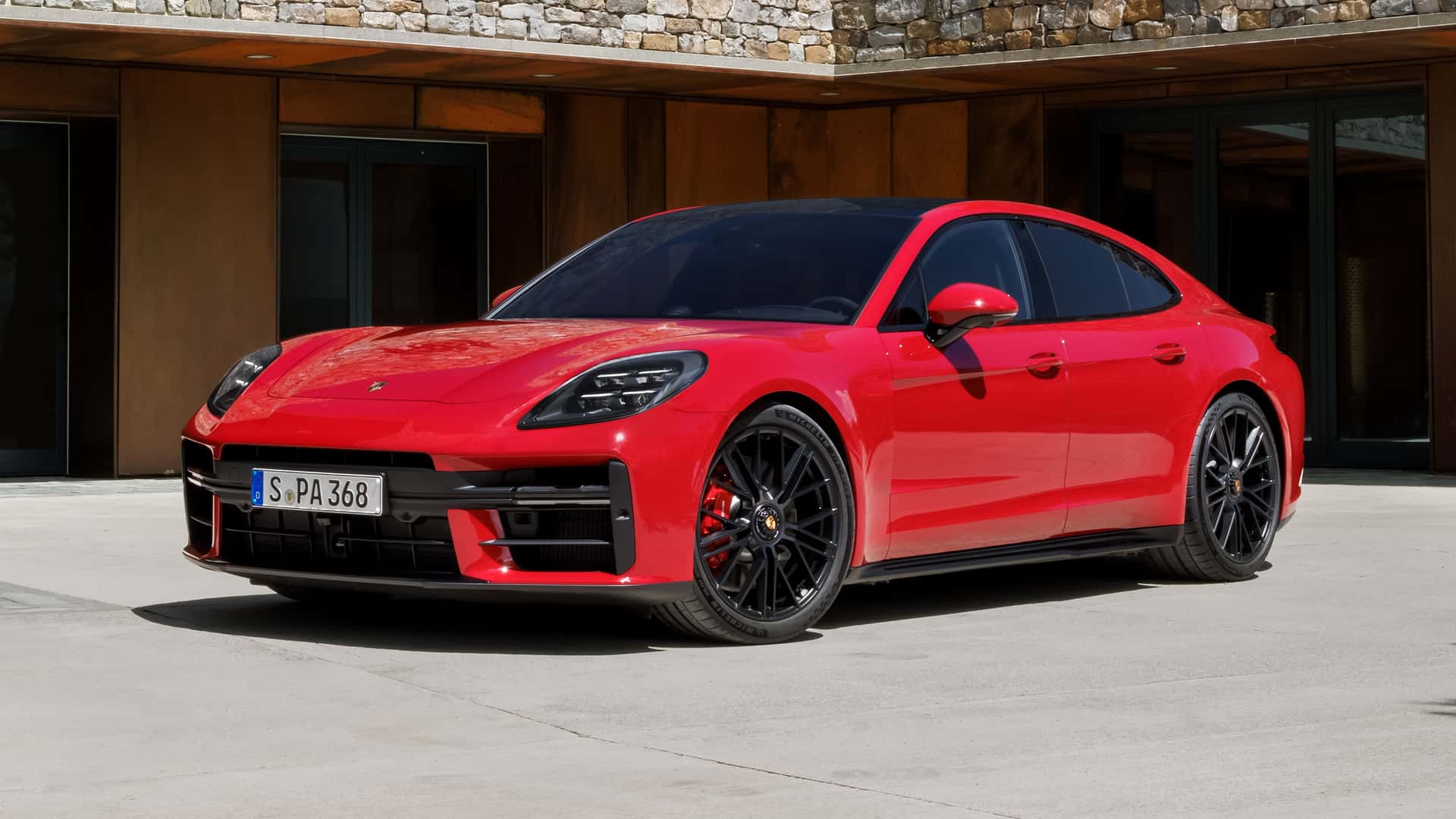
THE ELECTRIC PORSCHE PANAMERA WON'T KILL THE GAS CAR
The two will peacefully coexist for many years.
Porsche is playing its cards right with the Cayenne by keeping the gas versions on sale even after the next-generation electric model arrives later this decade. The ICE car will be offered well into the 2030s. We've now learned a similar strategy is in place for the Panamera. Launched earlier this year, the third generation has a long shelf life ahead as the future EV won't kill it.
Speaking with Autocar, Porsche's research and development boss confirmed plans for an all-electric Panamera. Michael Steiner told the British magazine the model's duality will echo that of the SUV: "The new Cayenne is fully electric, but for its whole lifespan we will have the ICE version in parallel. It's the same for the Panamera."
Considering the electric Panamera launch date hasn't even been announced, and the ICE model will be available during the EV's life cycle, the gas car will likely remain on sale into the next decade. But where will the Panamera without a combustion engine fit in Porsche's lineup? Based on a previous statement made by CEO Oliver Blume, the car could slot above the Taycan: "I think it could work [having both EVs] because they are playing in different segments. The Panamera is one step higher than the Taycan."
Porsche has already applied this ICE+EV strategy with the gas and electric Macan models. Well, kind of. The conventionally powered crossover dies in 2026. Meanwhile, it has already been discontinued in Europe because it no longer complies with a stricter cybersecurity law that came into effect earlier this year.
For the same reason, the 718 Boxster and 718 Cayman are no longer for sale in the EU. The sports car duo remains available in other markets but it too will be retired at some point in 2025 to make way for electric replacements.
Porsche still hopes it will reach its target of having EVs account for 80% of sales by 2030 and is renewing the products to pave the way. The large three-row SUV coming later this decade will be exclusively electric. However, the Zuffenhausen-based company is a bit more cautious in terms of EV adoption now that it has realized "this transition will happen slower in a lot of markets," according to Steiner.
He also believes synthetic fuel could help during this gradual switch from ICE to EV by blending e-fuels with gas: "By the end of the decade, there could be a significant share of e-fuel in use. We could, little by little, gallon by gallon, substitute fossil fuel with e-fuel by mixing a blend."
Since December 2022, Porsche has been producing synthetic fuel at a factory in Chile. As a refresher, the combustion engine is expected to get a new lease on life in the EU as sales of new ICE cars could continue after 2035 as long as they're powered by carbon-neutral fuel. However, BMW CEO Oliver Zipse is worried the legislation surrounding the use of synthetic fuels could turn out to be a "bogus solution:"
"There are currently many indications that the EU Commission is striving for a bogus solution in which the ban on combustion engines is relaxed simply by ostensibly opening up to e-fuels. However, if it then does nothing to accelerate the ramp-up of low-CO2 fuels and make their use practicable, this would be a deliberate ban on combustion engines through the back door."
Whatever the case may be, Porsche is not abandoning the development of combustion engines. Steiner said investments will continue to be made in the V-6 and V-8 to comply with tougher emissions regulations.
The Electrified 911 Is Here:
- 2025 Porsche 911 Review: A Hybrid Without Compromise
- The New Porsche 911 Is a Hybrid Like No Other. Here's How It Works
Source: Autocar
2024-08-27T09:14:03Z dg43tfdfdgfd